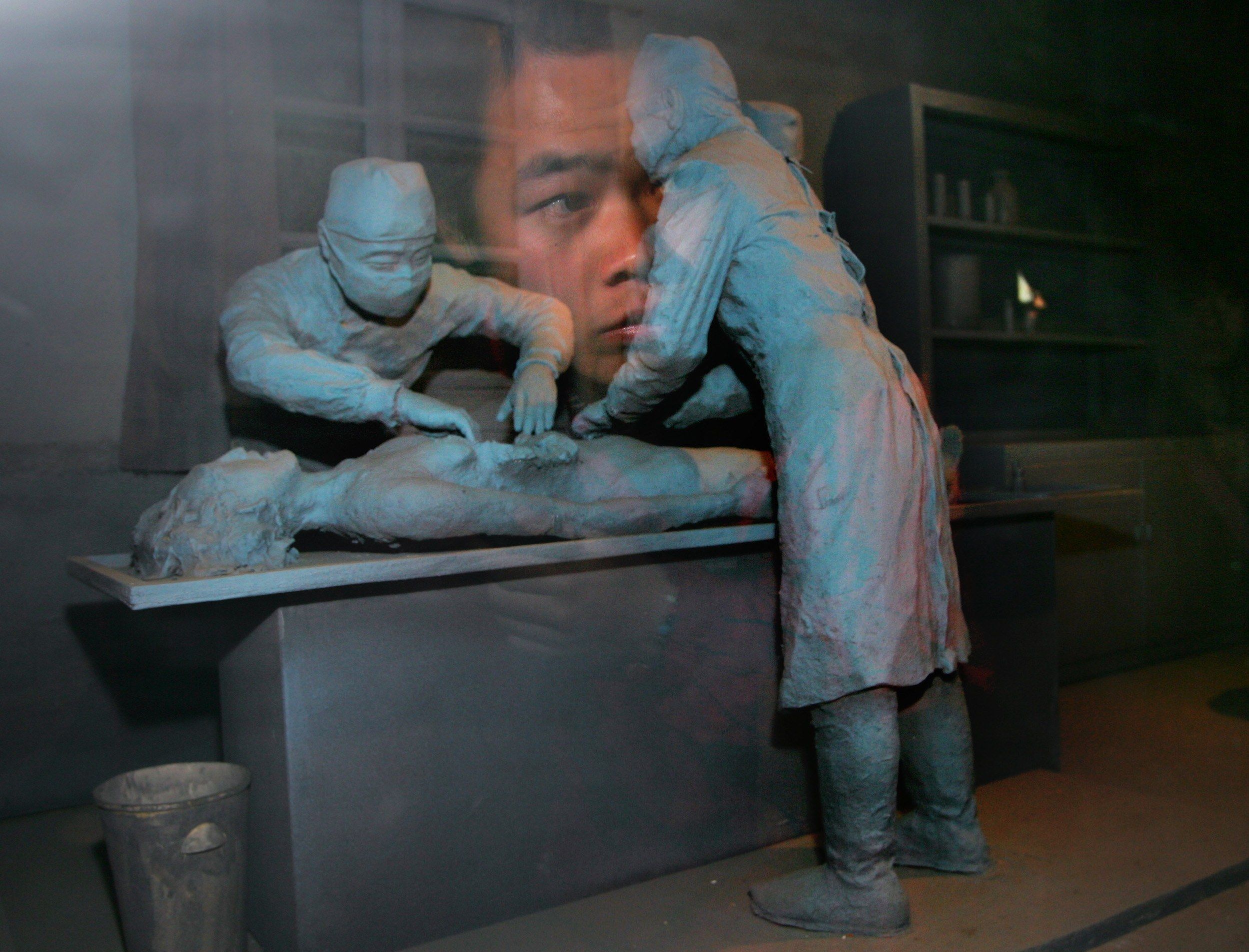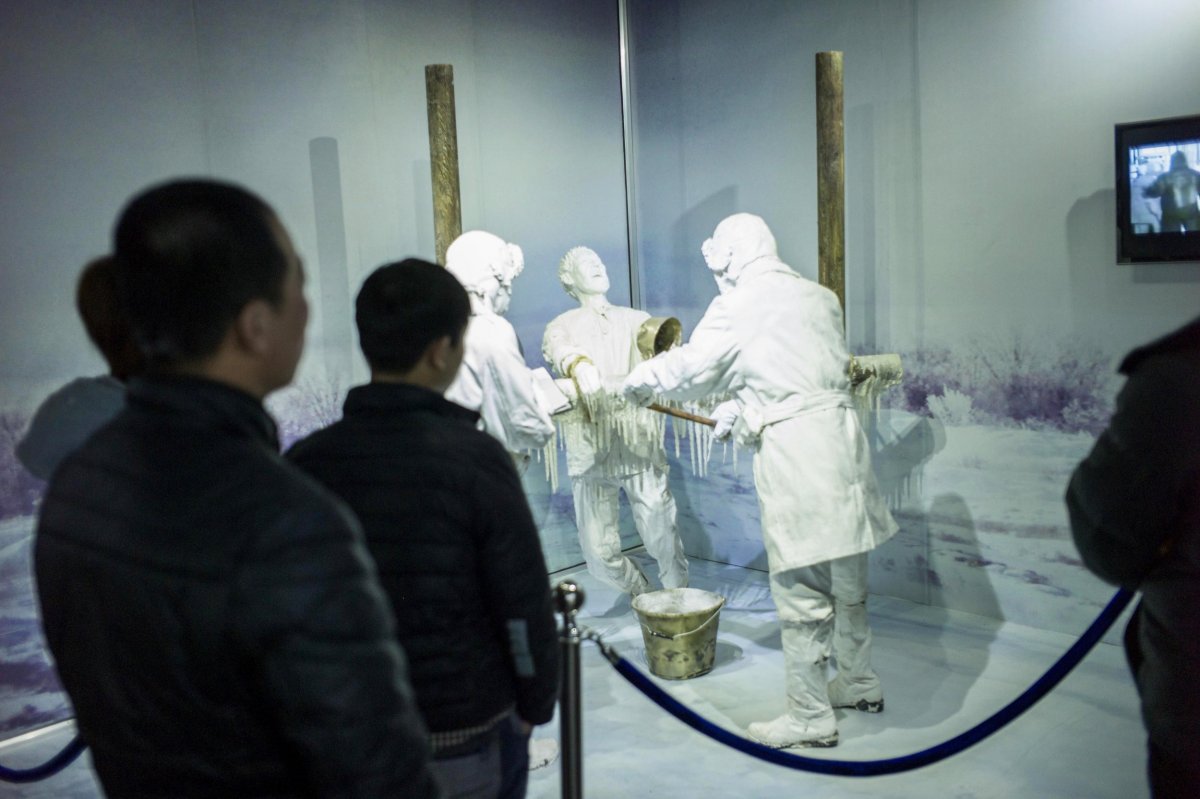
The names of 3,607 people who worked for Japan's notorious World War Two-era Unit 731 research group have been released, according to reports in The Japan Times.
Unit 731 conducted germ and chemical warfare experiments during World War Two, torturing and murdering thousands of civilians and prisoners of war.
The names of the people who committed its grisly crimes have long been concealed, and were hidden by U.S. prosecutors after the war in exchange for the unit's data and research. Its commander, Lieutenant General Shiro Ishii, was among those who received immunity from criminal charges. The U.S. decided to forgo prosecution to keep information about the experiments secret, and to stop the unit's research from falling into Soviet hands.
The names released are from a January 1, 1945 list of the people employed by the unit, which was officially called the Epidemic Prevention and Water Purification Department of the Kwantung Army. It details ranks, names and personal information—including family members—of 52 surgeons, 49 engineers, 38 nurses and 1,117 combat engineers who worked at the unit headquarters in the city of Harbin, in what is now northeastern China. During the war, Harbin was in the Japanese puppet state of Manchukuo.

Unit 731 was established in 1936 to develop biological weapons. Historians believe at least 3,000 people died at the Unit 731 facility between 1936 and 1945. The group infected prisoners with diseases including bubonic plague, cholera, smallpox, botulism and more. This research allowed Japanese forces in China to launch biological attacks, dropping plague-infected bombs on on Chinese cities. It has been estimated that up to 300,000 people died as a result of Japanese biological warfare in this period.
Prisoners, including Allied POWs, were also subjected to vivisection without anesthetic. According to testimony used at post-war trials, American bomber pilots were among those experimented upon at the Harbin headquarters, with some having organs removed.
Surgeons also purposefully left prisoners in freezing conditions to induce frostbite and allow them to study its effects on humans. Prisoners were used for testing weapons, including grenades and flamethrowers, and were forcefully infected with syphilis to study the disease's progression.
The identities of the Unit 731 employees have been released at the request of a group led by Katsuo Nishiyama, professor emeritus of Shiga University of Medical Science. The group first requested the disclosure in 2015, but the list was released with mostly redacted information. Another declassified list was released in January, but some personal information was still hidden.
Nishiyama hopes to use the list to ask Kyoto University to investigate the legitimacy of a university degree awarded to one of Unit 731's officers. He believes that some of the officer's experiments may have been conducted on humans, not animals, as the officer claimed.
"Kyoto University has not made independent efforts to verify or atone for its role in wartime research. We hope that our petition will precipitate further verification by Kyoto University to look into the legitimacy of the dissertation," Nishiyama told The Japan Times.
"Unit 731 has a collective responsibility to account for its war crimes, and that those crimes must be atoned for as a way of showing that those crimes will never be repeated," Nishiyama said.
Uncommon Knowledge
Newsweek is committed to challenging conventional wisdom and finding connections in the search for common ground.
Newsweek is committed to challenging conventional wisdom and finding connections in the search for common ground.
About the writer
David Brennan is Newsweek's Diplomatic Correspondent covering world politics and conflicts from London with a focus on NATO, the European ... Read more
To read how Newsweek uses AI as a newsroom tool, Click here.








